“As consumers we need to shop like we care”
“It is still easy to succumb to the powerful marketing and cheap prices of fast fashion”, says Corban Bryant, founder of a fair trade garment company in Nepal.
KATHMANDU · 17 MAY 2018 · 10:03 CET
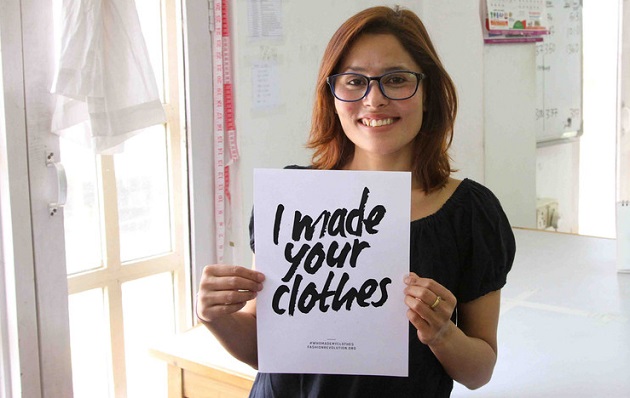
Most of us have heard about the unfair working conditions of the people working in the global textile industries.
But, has the awareness caused a change in our buying habits? Do we know who made our clothes? And, are we ready to pay a fair price for what we wear?
Evangelical Focus asked Corban Bryant about some of these questions. He is co-owner of Purnaa a freedom business project started in Nepal five years ago. About 80 full-time jobs have been created by the company and workers form small teams to produce knit tops, handbags, t-shirts and hats.

Answer. Many people are making choices to buy sustainable apparel and limit their overall consumption by buying higher-quality, longer-lasting, and more versatile items. Environmental sustainability seems to be more at the forefront than ethical labour practices, but both issues are becoming increasingly important to consumers.
Unfortunately, ethical and sustainable options can still be hard to find and are not always readily available, which makes it is easy to succumb to the powerful marketing and cheap prices of fast fashion. There are some great documentaries about this issue, including The True Cost.
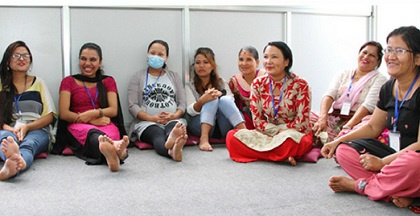
Q. Millions of people in Western countries have been reached by fair trade campaigns and good media initiatives. How long will it take for this awareness to actually bring a real change in the way we buy our clothes?
A. The 2013 Rana-Plaza collapse that killed more than 1,100 people in Bangladesh was a pivotal event in the garment industry. The response which spawned Fashion Revolution and other movements created enough momentum to where demand for ethical products is actually something big companies are paying attention to.
Unfortunately, socially and environmentally responsible apparel is still only about 1% of global garment sales, but the trend shows this segment is doubling each year. At that rate, it will take less than 10 years for it to become the majority of the market.
A key way to join and further this movement is to contact brands (through social media or via mail) with a letter similar to this one. When brands are asked to make their supply chains transparent, it shows them that customers care about the producers and the environment on the other end of the supply chain.
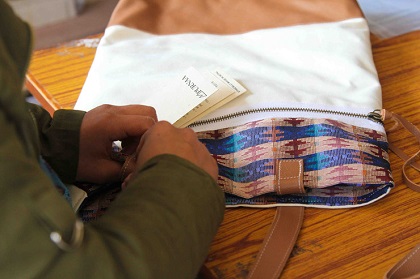
At Purnaa, we see this transparency is something that is very important to our clients. In addition to our custom manufacturing services, we have launched a line of Custom Print Gear offering basic items ready for customers’ printed logos and designs.
We publish complete lists of where each material input was sourced from. This level of accountability may seem extreme, but we are strongly committed to a transparent supply chain and have put in many hours to ensure we source materials ethically and sustainably, empowering workers throughout the manufacturing chain and protecting the environment from harmful practices. Of course, it’s not enough for just our company to make this change. Fair practices have to be adopted throughout the fashion industry and as consumers we need to shop like we care.
Q. What would you respond to people in Europe that say buying fair trade clothes is too expensive?
A. In some sense, they are right. The fair trade sector must become more professional and invest in capacity to become more competitive. Only when larger companies feel that fair trade supply chains are reliable and efficient can ethically-made products become part of the mainstream and prices come down as items are manufactured at scale. The outdoor apparel industry is moving in this direction.
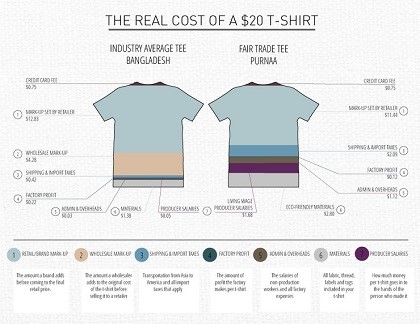
When we are out shopping for clothes and we see an item that costs surprisingly little, this should be a flag. It is likely cheap because the environment and fair treatment of workers has been disregarded in the making of that product.
At some point, we must morally decide that we cannot justify “a good deal” at the expense of others just because they live in a poor country on the other side of the world.
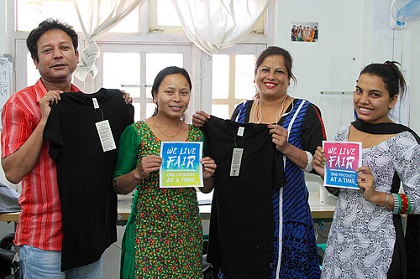
Published in: Evangelical Focus - life & tech - “As consumers we need to shop like we care”
